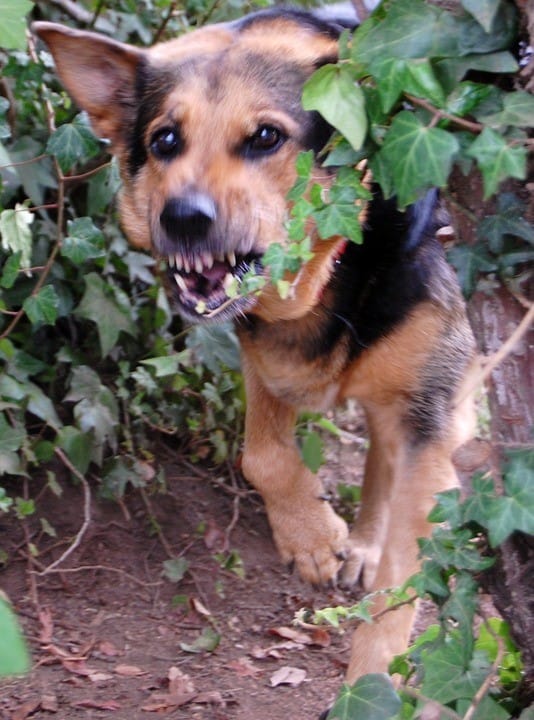Attacks by dogs hospitalize hundreds of North Carolinians each year. Family pets inflict the overwhelming majority of those injuries, which often require more than a tetanus shot and a couple of stitches.

Under North Carolina law, dog owners have strict liability for the harm (and property damage) their pets cause. Here’s what that means.
LEARN MORE
- Know the Basics of a Dog Bite Injury Case
- What Is Premises Liability?
- A North Carolina Personal Injury Lawyer Describes the Medical Risk From Dog Bites
The laws of North Carolina treat dogs, other pets and livestock as property. This makes an animal’s owner completely responsible for the animal’s behavior. City and county ordinance go into considerable detail regarding the exact ways in which dog owner must control their canine companions — fencing, leashes, vaccinations against rabies and distemper, etc. Section 67-4.1 of the North Carolina General Statutes places extra legal duties on the owners of dangerous and potentially dangerous dogs.
Specifically, that state statute declares that a dangerous dog is one that
- Has killed or severely injured a person without being provoked,
- Was labeled as potentially dangerous prior to a fatal or serious attack, or
- Is kept for the purpose of engaging in dog fights.
A dog can be labeled as potentially dangerous if it has attacked people, attacked other animals or “approached a person when not on the owner’s property in a vicious or terrorizing manner in an apparent attitude of attack.”
When a dog does bite or maul someone, the victim has the right to file personal or wrongful death claims under a legal concept called premises liability. As my North Carolina personal injury attorney colleagues and I explain elsewhere, premises liability applies because “property owners are required to keep their property ‘reasonably safe.’ If a property owner breaches this duty of care, they may be liable for any resulting injuries suffered by guests.”
Dogs are property, and that property is not safe when it is allowed to bite and claw.
A few limitations constrain a dog bite victim’s ability to file an insurance claim or civil lawsuit, however. First, a legal action against a dog’s owner must be usually be initiated within three years of the date on which the attack occurred. Exceptions to this statute of limitations apply when the victim is a young child or when the attack resulted in a wrongful death. Consulting with a North Carolina personal injury attorney will help clarify which legal deadlines need to be met.
Beyond strictly administrative matters, a dog bite victim can only collect an insurance settlement or secure a jury award if he or she can prove that he or she
- Was not trespassing or attempting to commit a crime;
- Did not torment, abuse or assault the dog just before the attack; and
- Was not attacked by a working dog such as a police K-9 or a herding dog engaged in its work.
When a dog bite victim can demonstrate that the attack was unprovoked and serious, the victim can seek compensation and monetary damages for medical expenses, wages lost while missing work to recover, ongoing health care cost, disability, and pain and suffering.
EJL







